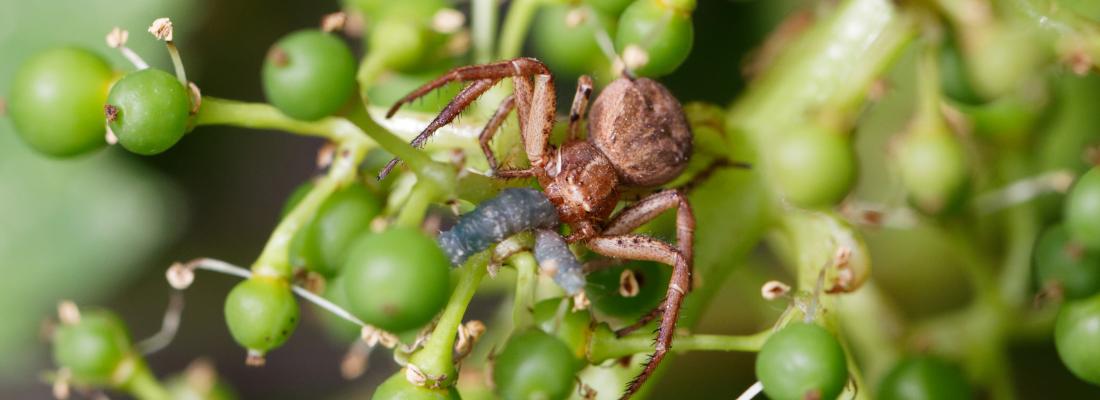Agroecology Reading time 2 min
Organic farming favours pest regulation
Published on 18 July 2018

Organic farming using no synthetic pesticides is generally considered to be beneficial to biodiversity. This suggests that the levels of natural processes supported by biodiversity, such as the natural regulation of pests (animals, pathogens or weeds) are higher in this context than under so-called conventional systems.
Within the framework of an international consortium, scientists from INRA, Université de Rennes 1 and their colleagues1have explored this issue by performing a meta-analysis of the scientific literature, demonstrating the impact of organic practices on the stimulation of natural regulation and control of pests.
Organic practices stimulate the natural regulation of pests
The scientists thus established that the natural regulation of pests (parasitism, predation or competition rates) was better under organic systems than conventional systems, for all types of pests (pathogens, animals or weeds). This observation suggests that organic practices stimulate the natural processes responsible for pest regulation.
The potential for organic systems to control pathogens, insects and weeds depends on the type of pest
In order to determine whether the levels of regulation – higher in an organic context than under conventional farming methods – resulted in lower levels of infestation, the research team also observed that the degree of pest control achieved under organic or conventional systems depended on the type of pest.
Thus organic cropping systems experience lower levels of infestation by pathogens (e.g. fungi or bacteria) than those managed conventionally. On the other hand, both organic and conventional systems suffer from the same levels of attack by animal pests (insects, nematodes, mites and others). Finally, organic systems are more affected by weeds than conventional systems, their presence probably contributing to the diversity of species antagonistic to pests and to an environment that is potentially less favourable to disease and animal pests.
These findings demonstrate the usefulness of organic farming practices in terms of pest regulation and the control of pathogens and harmful animals. They offer interesting perspectives to reduce the use of synthetic fungicides or insecticides without this raising the levels of pathogen or pest infestation.
1 The following units were involved from France: INRA-Bordeaux Sciences Agro Joint Research Unit for Vine Health and Agroecology, Institute of Vine and Wine Sciences (ISVV); INRA-ESA-Agrocampus Ouest Joint Research Unit for Biodiversity, Agroecology and Landscape Planning (BAGAP); Université Rennes I-CNRS Joint Research Unit for Ecosystems, Biodiversity and Evolution, and the Agrocampus Ouest-Université Rennes I Institute for the Genetics of the Environment and Plant Protection.
The core of the study : the scientists performed two meta-analyses:
- the first focused on the potential for biological control and concerned 43 studies, or 194 comparisons between conventional and organic farming systems. These data included measurements of predation rates, parasitism rates and soil suppression, or in other words the ability of the soil to control pathogens after their inoculation;
- the second concerned levels of infestation by the principal types of pests. It included 134 studies, or 594 comparisons. The data collected included the incidence or severity of attacks related to diseases, the abundance or density of pests, or the cover, biomass or density of adventive species, more commonly referred to as weeds.
Référence
Evidence that organic farming promotes pest control. Lucile Muneret, Matthew Mitchell, Verena Seufert, Stéphanie Aviron, El Aziz Djoudi, Julien Pétillon, Manuel Plantegenest, Denis Thiéry & Adrien Rusch. Nature Sustainability, 16 juillet 2018. https://doi.org/10.1038/s41893-018-0102-4
